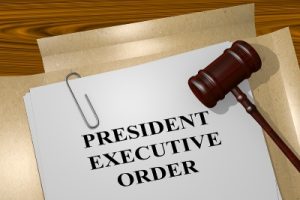
The Department of Government Efficiency Cost Efficiency Initiative Executive Order (EO 14222) looks to transform "Federal spending on contracts, grants, and loans to ensure Government spending is transparent and Government employees are accountable to the American public." One specific focus mentioned is spending on travel. In addition to an initial freeze on travel, the EO also mandates agencies implement an online system for employees to submit "written justification for ... [non-essential] federally funded travel" to facilitate travel authorizations moving forward.
This guidance has left many in government wondering how and if they can travel to events. It has also left event planners wondering if they need to alter agendas, create back-up plans for speakers that may have to cancel, or even cancel events altogether due to a risk of low public sector attendance.
The event industry is already seeing an impact. In this Military.com article, an Air Force official reported that, "Attendance [at the Air and Space Forces Association Warfare Symposium] has been limited to individuals with a direct role in the conference such as speakers, moderators, panel members, award winners and their supervisors, senior leaders with previously scheduled industry engagements, and local participants that attend at no cost."
It is critical for event organizers to understand what travel the order actually defines as "non-essential" and thus requiring justification. We took a look at the EO, broke down the important elements for event attendees and planners to understand, and offered some ways to adjust planning efforts moving forward.
Not all Travel is Prohibited
"Justified travel" exclusions primarily include travel for law enforcement officers or covered contracts and grants related to Federal criminal or immigration law enforcement. Additionally, the EO highlights that if a particular grant, contract, agency component, or property includes a travel budget, it can be exempted from the order's travel-related requirements.
For example, say the Small Business Administration awards a $3M grant to support small business development and includes hosting an annual entrepreneurship conference. The issuing agency would exempt the conference's travel budget from EO 14222 after consulting the DOGE team lead and Office of Management and Budget (OMB) director, clearing the way for travel to the event without additional approvals.
Adjusting Event Plans
In the rapidly changing public-sector environment, events that bring people together to share best practices and successes may be more important than ever. In order to help government attendees comply with spending restrictions and new processes, event organizers should consider the following tactics:
- Make attendance free for government employees - Events have long offered government discounts, but now is the time to consider waiving fees for government employees altogether. The GEOINT 2025 Symposium, a long-running gathering of the geospatial intelligence community, has waived fees for government employees attending the event this May in St. Louis, MO. While attendees may still have to apply for travel justification to cover airline and hotel costs, with the elimination of the conference fee, their overall budget request will be reduced. To cover lost revenue from such fee waiving, event organizers should look towards alternate funding methods, such as offering additional sponsorship opportunities.
- Host events local to the desired government audience - Removing the necessity to travel and waiving event fees allows for members of government agencies to attend without gaining additional permissions. This may mean organizations will have to host multiple smaller localized events, rather than one large conference. The intimacy of these smaller events may prove to enhance the experience for government and industry attendees alike.
- Consider webinars - While webinars cannot take the place of the networking offered by in-person events, they are a viable and attractive option to deliver important content. A virtual option will allow government officials to share their insights with attendees without having to justify any event expense.
- Provide justification language - Many events already provide "why you should attend" language on websites to help attendees get approval to attend events. Consider providing language that is tailored to the new justification criteria to help government employees quickly draft their required brief.
With the new justification requirements and the limits placed on attendance, government personnel that do attend events will really want to be there. This presents an opportunity to take advantage of a more engaged audience, and deepen the value for all attendees.
We'll keep following the impacts of this EO and other related policies and would love to hear how you are navigating event planning and attendance. Drop me a line at kerry@govevents.com.




